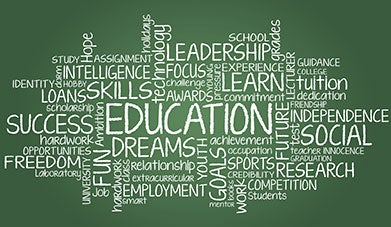Title: Nigerian Girls’ Education Subject of Women, Peace and Security
The Georgetown Institute for Women, Peace and Security (GIWPS) hold a symposium to highlight education for girls in Nigeria, where the militant group Boko Haram kidnapped hundreds of them earlier this year. Watch the webcast.
SEPTEMBER 26, 2014THE GEORGETOWN INSTITUTE FOR WOMEN,Peace and Security (GIWPS) sponsored a symposium today on education for girls in Nigeria, where the militant group Boko Haram

kidnapped hundreds of them this past April.
The symposium, webcast live, included Ngozi Okonjo-Iweala, Nigeria’s minister of finance, and GIWPS Executive Director Melanne Verveer.
“We must never, never make schools the instrument of war, nor battlefields for terror,” Okonjo-Iweala said, “and we feel dismayed that at this time in our lives we have come to a situation where schools, where girls’ educations, have been made into instruments of war.”
A SAFE ENVIRONMENT
“We must do everything possible, working with the international community, working with the private sector and working with good people like yourselves to ensure that our children are able to learn in a safe environment,” she added.
Okonjo-Iweala is also aformer World Bank managing director who was named one of the world’s most influential and powerful people byTIMEandForbesmagazines. Rajiv Shah, U.S. Agency for International Development (USAID) administrator and Georgetown President John J. DeGioia also participated in the symposium.
“Advancing Safe Access to Education for Girls in Nigeria and Beyond” addressed the problems facing Nigeria and other girls’ safe access to education. GIWPS says solving this issue is critical to closing the global education gap and essential to future prosperity.
RISKING THEIR LIVES
“Around the world girls who want to go to school from Afghanistan to Iraq and beyond are risking their lives to get an education,” Verveer said, noting that the 300 Nigerian school girls captured by Boko Haram this past April are still in captivity. “Radical extremists who believe that girls, especially, should not go to school continue these attacks.”
Verveer announced that GIWPS will partner with Accenture, a management and technology consulting firm, to analyze current private sector investments in Nigeria. GIWPS and Accenture will then assess existing initiatives to identify potential synergies that may be leveraged to help address the critical issues of girls’ access to education in Nigeria, she explained.
“Georgetown’s President DeGioia wanted this university to come together respond in ways large and small to address this terrible challenge,” Verveer said.
ROOM TO LEARN
Shah talked about USAID efforts to help the children of Nigeria.
“We’ve responded to the call to action that we all share by announcing nearly $150 million specifically for helping more kids go to school,” he said, “improving the quality of reading instruction and learning in as many schools as we can reach and including a very specific investment in the Safe Schools initiative.”
He said a USAID initiative called Room to Learn is intensifying efforts to reach millions of children in Haiti, northern Nigeria, Afghanistan, and “a number of other settings where endemic poverty and conflict conspire to rob these children of their future.”
Announced in 2011 by then-Secretary of State Hillary Clinton and DeGioia at the unveiling of the U.S. National Action Plan on Women, Peace and Security, GIWPS is housed in the university’s School of Foreign Service.
The institute seeks to examine and highlight women’s participation in peacemaking, peacekeeping and peace building to strengthen conflict prevention and resolution initiatives; mitigate humanitarian emergencies; foster democratic political transitions; and enhance post-conflict economic development.